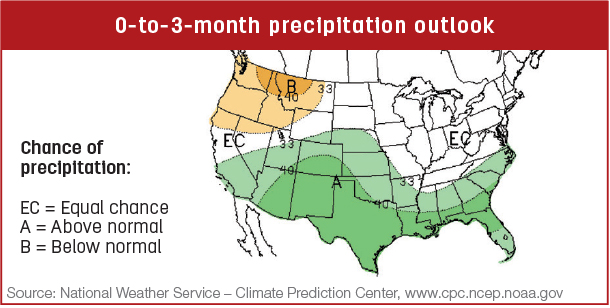If nonlactating cows are allowed to eat moderate-quality hay free choice, they will generally consume 1.8 to 2 percent of their bodyweight on a dry matter basis each day. A lactating cow will consume about 2.3 to 2.5 percent of her bodyweight.
That means a 1,400-pound nonlactating cow would consume about 28 pounds of dry matter, and the same cow when lactating would consume about 35 pounds. This information along with feeding and storage loss estimates can be used to calculate how much hay will be needed for each cow over a given period.

If we assume intake is 35 pounds for the 1,400-pound lactating cow and that feeding losses will be 5 percent, then we need to provide about 36.8 pounds of hay per cow each day (35 pounds divided by 95 percent equals 36.8 pounds).
For round bales, storage losses can vary tremendously depending on bale size, bale density, forage species, stacking layout, drainage, and the amount of wind and sun that can get to the bales after it rains. So using the example from above and a 10 percent storage loss, 40.9 pounds of hay would be needed at the start of the season to provide one day of hay (36.8 pounds divided by 90 percent equals 40.9 pounds).
When taking hay inventories or buying more hay, make sure to think in terms of tons or pounds of hay instead of just number of bales. Bale weight can vary significantly depending on size and density. For more information on this, visit beef.tamu.edu, and click on publications.
Then look for the publication titled “Bale weight: how important is it?” Remember, bales of cornstalks, sorghum stubble and other crop residues won’t weigh as much as traditional grass hay.
If you do not have enough hay, there are ways to stretch limited supplies. Selling cows is one option. Another option is to limit the amount of hay that is fed and use whole corn, soybean hulls or other similar energy sources to make up the difference.
It is critical to work with a nutritionist to make sure nutrient requirements are met. Planting ryegrass and small grains can also help stretch limited hay supplies. ![]()

-
Jason Banta
- Associate Professor and Extension Beef Cattle Specialist
- Texas A&M University
- Email Jason Banta








